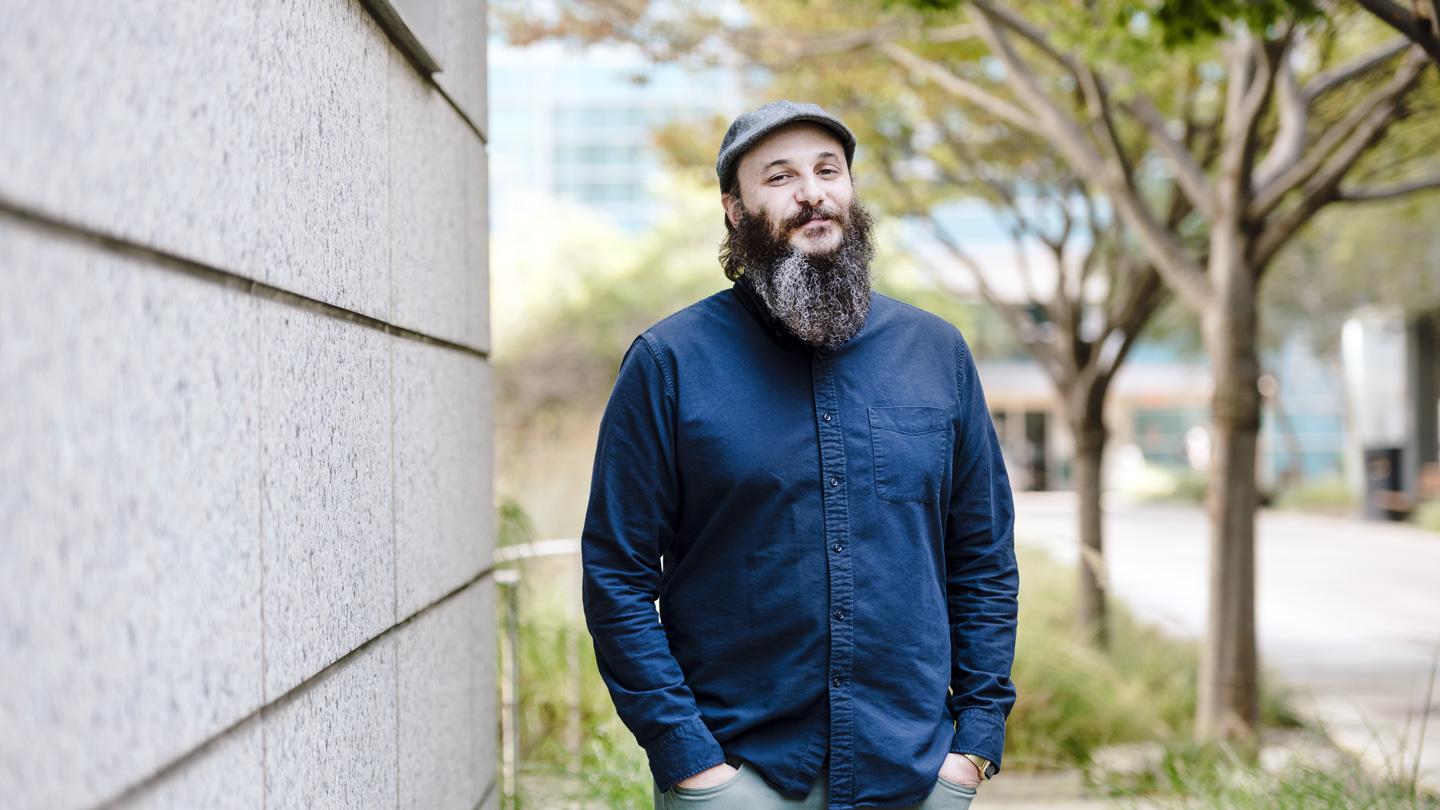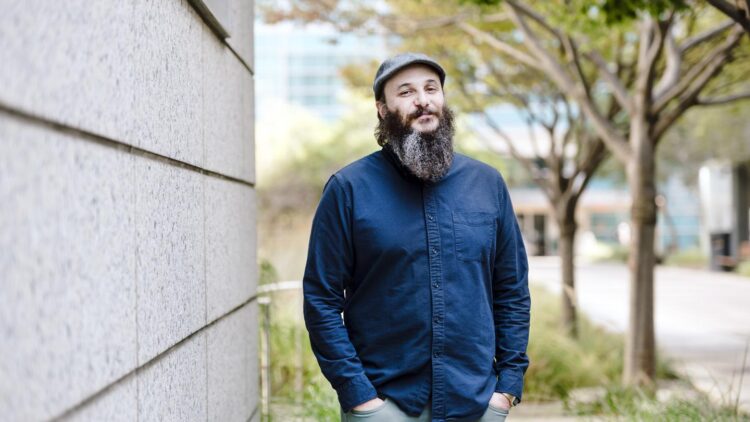Seth Shipman is recognized for his exceptionally creative research approach

Credit: Credit: Gladstone Institutes
SAN FRANCISCO, CA — The National Institutes of Health (NIH) has granted an NIH Director’s New Innovator Award to Seth Shipman, PhD, assistant investigator at Gladstone Institutes. This competitive award is reserved for early-career scientists with unusually creative ideas that hold the potential for exceptional impact.
For Shipman, the award will support the development of innovative technologies to edit the DNA found in mitochondria–energy-producing structures within human cells. His efforts could lead to new treatments for a range of currently incurable diseases caused by mutations in mitochondrial DNA.
“Most human DNA is found in the cellular nucleus, and gene-editing technologies are on the cusp of treating diseases of nuclear DNA,” says Shipman, who is also an assistant professor of bioengineering and therapeutic sciences at UC San Francisco. “But that technology can’t reach the DNA inside mitochondria. We need an entirely different set of tools so that people with mitochondrial diseases are not left behind.”
His team’s unique approach to access the DNA within mitochondria is to physically remove the structures from patients’ cells, which will allow them to be engineered in a laboratory setting. The goal is to be able to modify a patient’s mitochondrial DNA to fix disease-causing mutations, and then transplant healthy mitochondria back into the patient.
Several devastating conditions could potentially be treated with this novel approach, including Leber’s hereditary optic neuropathy, which causes blindness, as well as other diseases of the sensory and motor systems. It could also open new possibilities to treat degenerative diseases that have been linked to mitochondrial mutations that build up over a lifetime, such as Parkinson’s disease.
“We are thrilled that Seth has received this prestigious award,” says Gladstone President Deepak Srivastava, MD. “His young lab already has an impressive track record of building exciting new biotechnologies, and this funding provides real potential to solve a long-standing challenge in disease research.”
Shipman’s team will combine strategies from synthetic biology, bioengineering, genomics, and quantitative molecular research. They have already launched efforts to build mitochondrial gene-editing technology in well-established laboratory cell lines. Later, they plan to test these technologies in cells derived from people with mitochondrial diseases, followed by tests in mouse models of these diseases, such as Leber’s disease.
The ability to modify the mitochondrial genome at will would also provide an unprecedented tool for other scientists to explore mitochondrial DNA base by base, opening new opportunities for fundamental discovery.
“What keeps me going is the idea that we could create foundational technologies that will ultimately affect people’s lives,” Shipman says.
This new area of research represents a creative convergence of Shipman’s previous work with human cells and bacteria. Mitochondria are thought to have evolved from free-living bacteria that made their way inside larger cells, and some of the tools Shipman hopes to apply to modify mitochondria are inspired by his work with bacteria.
Past Gladstone recipients of the New Innovator Award include Shomyseh Sanjabi, PhD, (now at Genentech), who received it in 2013, and 2008 recipient Leor Weinberger, PhD, senior investigator, William and Ute Bowes Distinguished Professor, and director of the Center for Cell Circuitry at Gladstone Institutes. The award is part of the NIH’s High-Risk, High-Reward Research program, which provides funding to visionary scientists like Shipman.
###
About Seth Shipman
Seth Shipman holds a BA in neuroscience from Wesleyan University and a PhD in neuroscience from UC San Francisco, where he worked with Roger Nicoll to understand the molecular events that drive formation of synapses in the brain. His graduate work uncovered how a family of adhesion molecules, called neuroligins, can influence both synaptogenesis and plasticity. Shipman conducted postdoctoral research in genetics, synthetic biology, and stem cell biology at Harvard Medical School and Harvard University with George Church and Jeffrey Macklis, where he developed an approach to store information into the genomic DNA of living cells. Shipman was named a 2020 Pew Scholar in the Biomedical Sciences, and was added to the 2019 List of 10 Young Scientists to Watch by Science News.
About Gladstone Institutes
To ensure our work does the greatest good, Gladstone Institutes focuses on conditions with profound medical, economic, and social impact–unsolved diseases. Gladstone is an independent, nonprofit life science research organization that uses visionary science and technology to overcome disease. It has an academic affiliation with UC San Francisco.
Media Contact
Julie Langelier
[email protected]
Original Source
https:/





